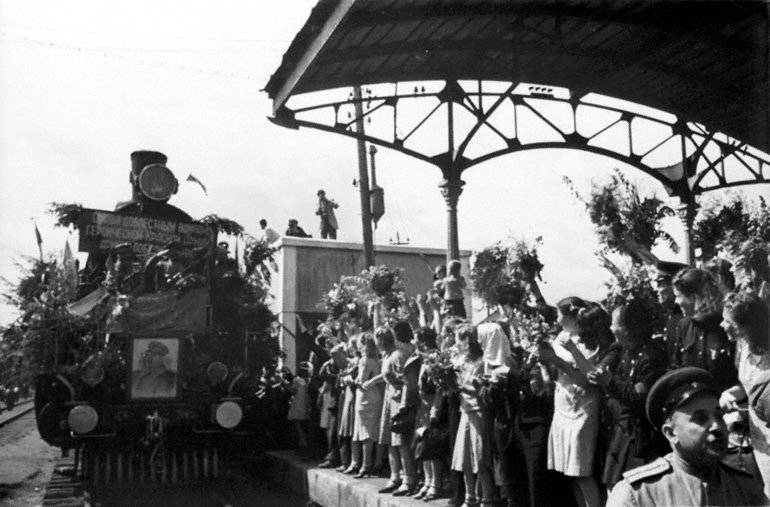Belorussky Railway Station

The address: Tverskaya Zastava, house 7 is located Belorussky railway station, the building of which is one of the most recognizable among all Moscow railway stations. Belorussky railway station in the Russian capital story. It was built in 1870 year, to establish a rail link with Smolensk. However, the station did not receive its current name immediately. In the 70 of the last century, it was decided to call the station Brest, as the railway was extended beyond the city of Smolensk to Brest station.
After 40 years after this, it was decided to rename the station to Aleksandrovsky. This event occurred in the 1912 year. However, the October Revolution made its own adjustments, and already in 1922, a new name appeared at the station - Belarusian-Baltic, which, in principle, reflected the direction of train movement.
Today, the Belorussky Railway Station of Moscow sends trains not only to the territory of the Republic of Belarus, but also to Vilnius, Kaliningrad, Prague, Warsaw, Berlin, Arkhangelsk and even Nice. Therefore, among Muscovites, at one time there was even an interesting joke: “What unites Russian Arkhangelsk and French Nice?” Answer: “Belorussky Station”.
However, for the majority of Russians, the Belorussky Railway Station is associated with the cult Soviet film that appeared at the box office in 1970 year. This film of the same name is directed by Andrei Smirnov, which has become a real event. The real leitmotif of the film is the song performed by Nina Urgant. Since that time, “We will not stand behind the price” has been performed annually on the occasion of the celebration of the next anniversary of the Great Victory, as well as on days when veterans are honoring the so-called local conflicts.
Modern paratroopers consider this song to be a real hymn, so they are often performed with a guitar, meeting with comrades.
In 1936, the station acquired its present name, and is now the unofficial symbol of the Soviet people’s victory over fascism, because it was here that trainloads of victorious fighters arrived in 1945.
Perhaps no station in the world can boast such a multifaceted history as Belorussky Station in Moscow.
Information